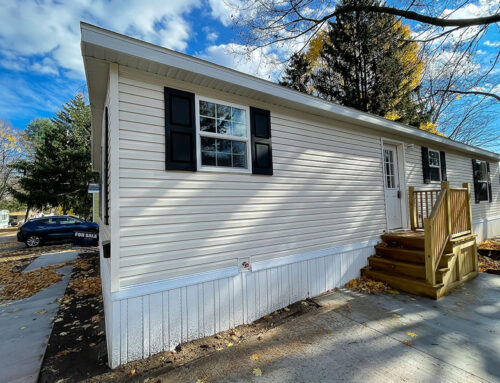While recently driving along the Bruckner Boulevard waterfront in the South Bronx, I noticed this once impoverished and deteriorating historic district is now booming with new developments, including trendy new bars, restaurants, and shops. The Bronx is experiencing an economic transition and may become one of the hottest real estate markets. This neighborhood is booming with investment opportunities, but it’s where I learned a hard lesson about buying a foreclosure property for pennies on the dollar.
I had an eager eye, and bought up a building in need of extensive work at a rock-bottom price, believing I could resell it at market value. Unfortunately, I was naive. Trespassers broke into the vacant home and tore apart the electrical system, starting a fire that caused $20,000 in damages. The lesson learned? Investing in transitional areas like the Bronx requires implementing strong security measures. Don’t get stuck footing the bill for damages instead of reaping your well-deserved equity rewards. Insure your investments.
Security for Your Investment Property
In areas undergoing extensive economic change, like the Bronx, safeguarding homes under renovation is the key to realizing your return on investment. Unsecured properties are an open invitation to trespassers who can become injured by on-site construction equipment, subsequently suing you, the property owner, for damages. Illegal activity, like vandalism and fire, also pose significant risks for an unoccupied home. The result: higher project costs, unrealized revenue potential, or even complete property loss.
I’ve talked to a lot of investors about their strategies for mitigating risks to their vacant properties. Some recommend maintaining signs of activity in the home by installing timed lights in several rooms and around the yard, visiting often and irregularly, or making occasional changes like hanging a new wind chime outside. Others say they employ more aggressive measures such as installing a double-keyed deadbolt on the doors and boarding up windows with steel bars. Although not cost-effective over the long term, in extreme circumstances investors have even installed a full security system or hired security patrols to guard their property. But, regardless of how many security measures you put in place, the reality is that vacant homes remain exposed liabilities.
The Nuts and Bolts of Insurance Policy Options
While having coffee with a HomeVestor® franchisee recently, he lamented an experience with one of his newly-renovated but still-vacant properties. Even though he kept outdoor lights on and secured the doors with deadbolts, an intruder was able to pry open one of the doors, breaking the door jam and destroying the deadbolt. Although the intruder left behind some illicit drug paraphernalia, thankfully, the only items stolen were a kitchen faucet and a floodlight—both relatively inexpensive to replace.
He was lucky. But, it’s better to be covered than lucky. The best way to protect your investment asset is to insure it. I know, you‘ve probably heard how difficult it is to get insurance on a vacant property. But, some of the larger insurance companies are increasingly offering policies targeted toward home renovators. Vacant home policies can vary but, generally speaking, cover:
- Named Peril Coverage: Policies that include this type of coverage specify exactly the type of “perils”—such as fire, lightning, and hail damage—that can be compensated for. You will need to do your own risk assessment to determine which type of hazards are most likely to affect your property. Assume anything not explicitly named is explicitly excluded.
- Liability Coverage: In the event you’re found legally liable for an accident or injury that occurred on your vacant property, this optional coverage will come into play. It’s especially important during the renovation period as property owners can be held responsible for liability losses that exceed the contractor’s policy.
- Vandalism and Malicious Mischief Coverage: Deliberate physical damage to a property can be covered under certain policies, however, you will want to read the fine print about what “vandalism” means. In one infamous legal dispute, the court found that a case in which a transient who broke into a vacant home and started a fire did not fulfill the legal definition of “malice” (or intent) as his motive was to stay warm, not intentionally destroy the house. The property owner was not compensated for his loss.
- Agreed Loss Settlement: This policy option covers any complete property loss, such as the result of a fire, up to the amount of insurance purchased (minus any deductible). The tricky part about buying this coverage is that as renovations near completion, the value of the property increases, so be sure to stay in touch with your agent. You don’t want to be insured for only the price that you paid for the property when you’ve already invested much more!
- Actual Cash Value: This coverage should not be confused with a “replacement cost” option, which pays for the loss at today’s cost. An Actual Cash Value option only covers what you would pay for the item at today’s price—minus depreciation.
Gain The Security of Working With Homevestors®
Admittedly, insuring a vacant house can be more expensive than a policy for an inhabited house. While your property should be insured regardless, there is a little-known strategy that some investors employ: they get a house sitter to stay in the home during the renovation process. That way, it’s not technically vacant and can be insured at regular rates.
Home investors often find the highest return on investment in transitional neighborhoods like the Bronx where architecturally interesting homes ripe for renovation can be purchased at bargain prices. But, neighborhoods that have not been invested in for many years can also pose potential risks. HomeVestors® franchisees, however, have peace of mind. They have the support of a Development Agent with strong investing acumen serving as their mentor through all aspects of the investment property process.
To find out more about how you can benefit from the security of HomeVestors®’ proven home-buying and rehabbing strategy, request information today.
Each franchise office is independently owned and operated.
Contact
"*" indicates required fields





